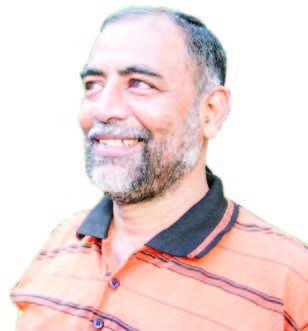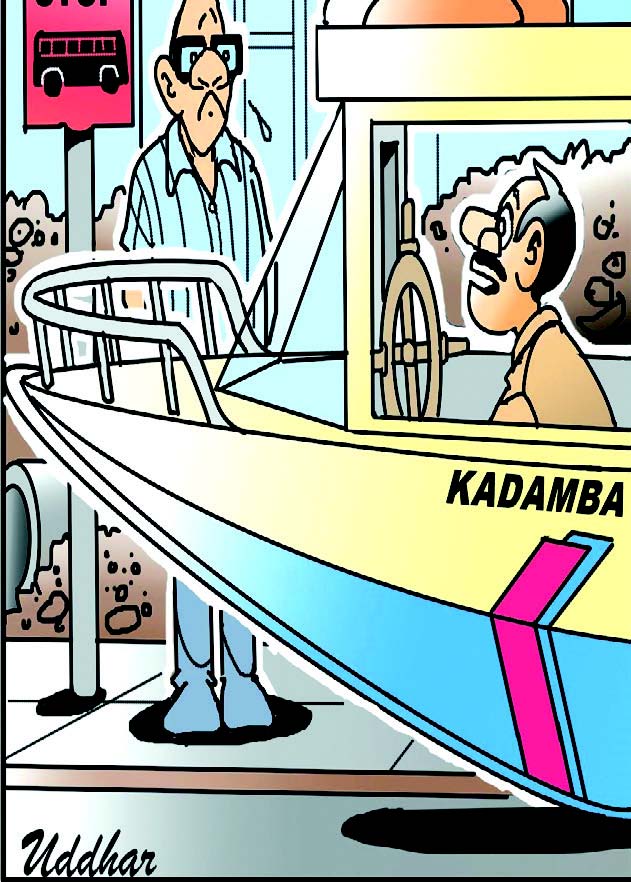
Soter D’Souza
Shedding a few tears, consoling the grieving family and swearing at the law enforcers every time there is a fatality resulting from a road crash has become the default setting, nothing more than a ritual for Goan society. Adding to this hypocrisy is the award of compensation to the surviving dependents of the dead while the driving on roads continues to be chaotic as usual. At the end of it all, no lessons are learnt either way, by citizens nor government, as the young and productive lives continue to be lost or maimed on Goa’s lethal roads.
A statistic of 454 accidents across Goa, some 50 deaths within the first 53 days of 2024 will not be a priority election issue for Goans as much as caste and religion. The public’s view on the road safety crisis remains as cock-eyed as the politicians’ vision of development and progress. While babble of ‘Modi ki guarantee’ fills the air, there is absolutely no guarantee on these killer roads that bread winners who leave their homes to work will return alive or in one piece.
The road safety weeks have been nothing more than a formality. Just a bunch of individuals with a couple of cops at some road intersection waving posters promoting the use of helmets and seat belts or, some dance troupe on the road drawing attention to potholes in social media. An extended version of the road safety carnival could be a group of government officers and their NGO influencers touring the State to conduct road audits and identify dark spots. The Village Road Safety and Traffic Management Committee, which was introduced in Village Panchayats from 2016, is nothing but a joke with no official functions notified for this committee even in 2024. Every time there is a horrific accident it’s the same old blame game, passing the buck between agencies and the solution of 4 E's strategy consisting of Education, Enforcement, Engineering and Emergency which gets recirculated for public consumption. And all this drama is justified and rationalised with a response that “Something is better than nothing” or, “What have you done? At least we are doing something.”
For the government, road safety is nothing more than reducing the figures of road fatalities and generating revenue through registration taxes and fines. It is not bothered if citizens are disabled for life. Road safety is about rattling the backbone of two-wheeler riders with speed breakers, humps, furrows and potholes. The law enforcers are busy entertaining the public with alcometer tests when there is a rising incidence of drug abuse by drivers.
Every social crisis is now subjected to political and business jargon and so is the issue of road safety. The people’s panic is exploited with exciting offers of life insurance policies, airbags for vehicles, speed governors, cameras and other solutions promising safety. The rise in car sales are celebrated with no one asking how many more vehicles can be accommodated on the roads. Perhaps many who are now screaming hoarse over the issue of road safety may be those same cheerleaders of yesterday who advocated for wider roads as prevention for accidents and easing traffic congestion. Both politicians and civil society groups cash in on this road terrorism which is predominantly haunting Vulnerable Road Users (VRUs), the pedestrians, cyclists and motorised two-wheelers. But what better can one expect when the mood of the nation has become so predictable and shameless that politicians can dare to fearlessly toy around at will with people’s minds and emotions?
The cause for unsafe roads is much deeper, complex and complicated than what is admitted. It has to do with a cultural rot in which abuse and violence is normal; it’s about having one’s way over anything or anyone else at any cost. Political corruption, compromised road engineering and safety codes and poor quality of construction and maintenance of road infrastructure are only part of the problem. But the major factor which escalates the risks of road crashes is the total lack of road sense and civility in both motorists and pedestrians. What gets buried in the road safety audit is the default mindset of self-centeredness which considers ‘might as right’. The more horse powered, financially secure and cushioning with airbags and political influence, the more is the presumed entitlement to drive roughshod and ignore the laws and signs on the road.
The hierarchy of road users enforced in developed countries gets turned on its head in Bharat. Good driving practices like respecting the ‘Right of way’ and maintaining ‘Safe distance’ are foreign for the desi mentality. The rear and side view mirrors and sidelights get considered as decoration while the headlights, now halogenated, are for blinding the oncoming motorists. There is absolute ignorance when it comes to lane changing, negotiating turns and parking. The car horn is a doorbell for waking up the servants to open the gates or to hound the VRUs off the road.
No amount of laws, awareness and enforcement nor undertakings, speed governors and fines will instill discipline on roads without tackling the mental attitudes which contribute to dangerous behaviour. It's that old bullock cart mentality behind the wheel, now empowered economically and technologically, which bullies and goes berserk on roads, more so when the cops and cameras are out of sight. The basic driving ethics cannot be understood by a society which disregards table manners and etiquette.
Taking a cue from Bob Dylan’s song ‘Blowing in the wind’, the answer my friends as to how many deaths will it take to be known that too many people have died is blowing in the wind.
(The writer was a Counselor at a Drug Prevention and De-addiction Centre in Goa)
